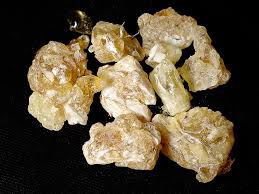Frankincense and Its Origins
Known as the “king of oils,” frankincense comes from the sap of trees in the Boswellia genus, such as the Boswellia sacra tree. These trees grow in Middle Eastern countries like Oman and Yemen, as well as African nations such as Somalia and Ethiopia.
Traditional medicine has long valued frankincense for its potential medicinal properties, making it a staple in many herbal and alternative therapies.
Can Frankincense Help with Cancer?
Research suggests that frankincense may have anti-inflammatory and anticancer properties, but more studies are needed to confirm its effectiveness.
A 2022 review explored frankincense’s ability to regulate immune cells and control cell signaling, which may help prevent cancer cells from growing and spreading. While some research indicates that frankincense may reduce brain tumor-related edema, it does not appear to shrink brain tumors.
A 2024 clinical trial examined the effects of boswellic acids, a key component of frankincense oil, on 18 breast cancer patients before surgery. Participants took 2,400 mg of frankincense extract for 5 to 56 days. The results showed a significant reduction in breast cancer cell growth without serious side effects. However, researchers stress the need for further studies.
As reported by healthline, some studies have also explored how frankincense affects cancer-related symptoms. A 2018 case study suggested it could help with cancer-related fatigue, while a 2022 review noted that it may help chemotherapy patients feel calmer.
Can Frankincense Treat Cancer?
Although research highlights frankincense’s potential benefits for some cancers, no studies have proven that it can treat cancer. Scientists acknowledge its therapeutic potential but emphasize the need for more research to understand its full effects and possible side effects.
























